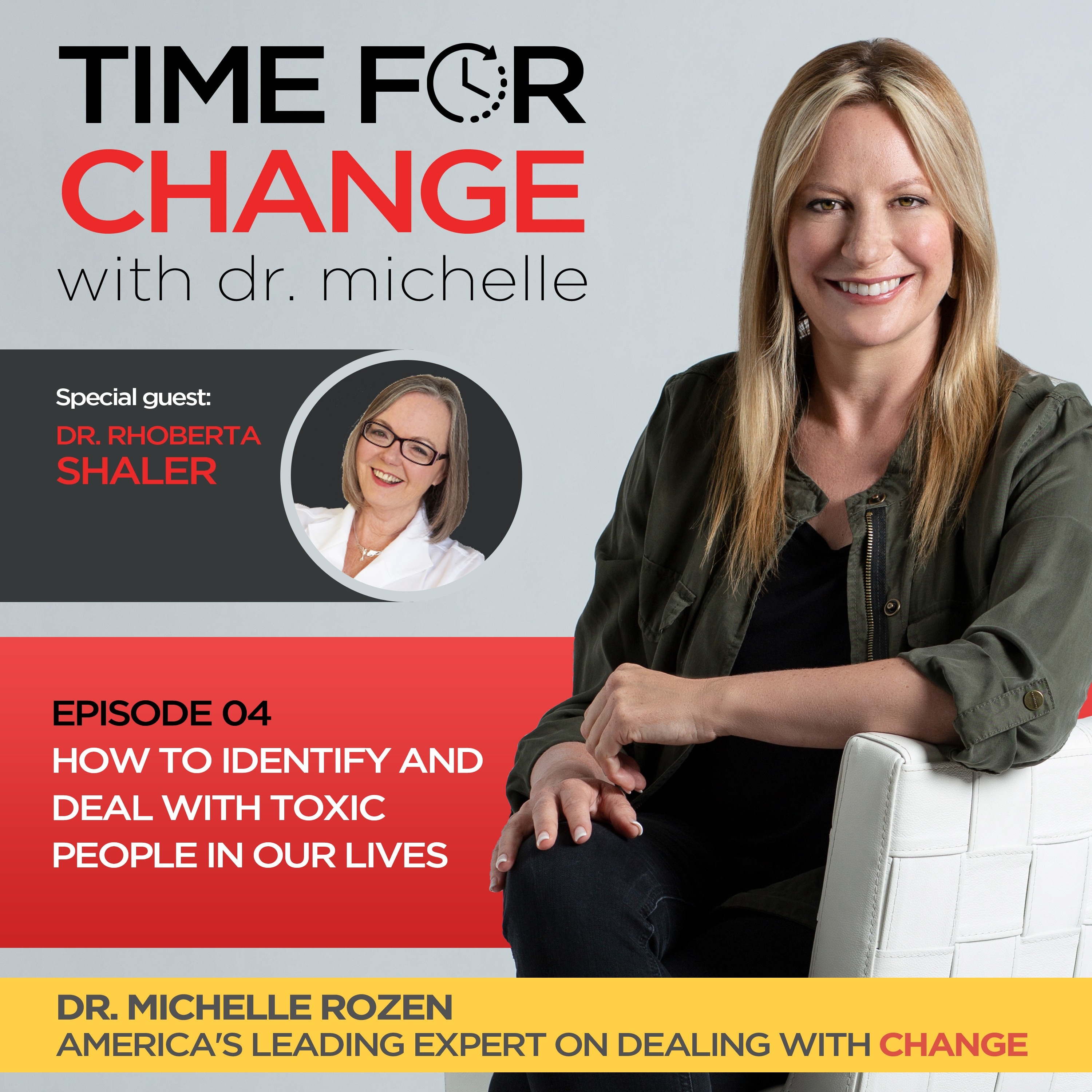How to Identify and Deal with Toxic People in Our Lives
- Author
- Dr. Michelle Rozen
- Published
- Tue 03 Sep 2019
- Episode Link
- https://time-for-change.simplecast.com/episodes/how-to-identify-and-deal-with-toxic-people-in-our-lives-gMI005cz
Highlights of the show include:
● Definition of Hijackals: People who hijack relationships for their own purposes, and then relentlessly scavenge those relationships for power, status, and control
● Toxic people display specific patterns, traits, and cycles; as children, they learned what to do to survive and usually don’t choose to behave this way
● Different Dynamics: Most people are toxic at home, where they want to control someone
● Other people’s fears, concerns, and expectations put on you, make you doubt yourself
● How to identify hijackals:
○ No matter the topic, the other person has to be right or win the conversation
○ Black-or-White Thinking: Hijackals don’t have love to give you, they only have uses for you
○ Everything is your fault, over blaming by the hijackal
○ You try to please hijackal to gain their love; hijackals have little to no empathy
● Psychological diagnosis doesn’t matter; if they behave like a hijackal, then they are one
● Step out of situations and comfortable being uncomfortable, despite possible alienation
● Hijackal Parents: Foster care may have been better; it’s not you, but them
● Life After Hijackals: Compassion, grief, transform, and take care of yourself
Links and Resources:
Dr. Rhoberta Shaler
Diagnostic and Statistical Manual of Mental Disorders, 5th Edition: DSM-5
Dr. Michelle Rozen
Quotes by Dr. Rhoberta Shaler:
“Google is an index, not a psychological professional.”
“All hijackals drink from the same pool of traits.”
“Most people are toxic at home, where they really like to have power and control.”
“Hijackals often paint a public picture of perfection, while at home creating a private place of pain.”
